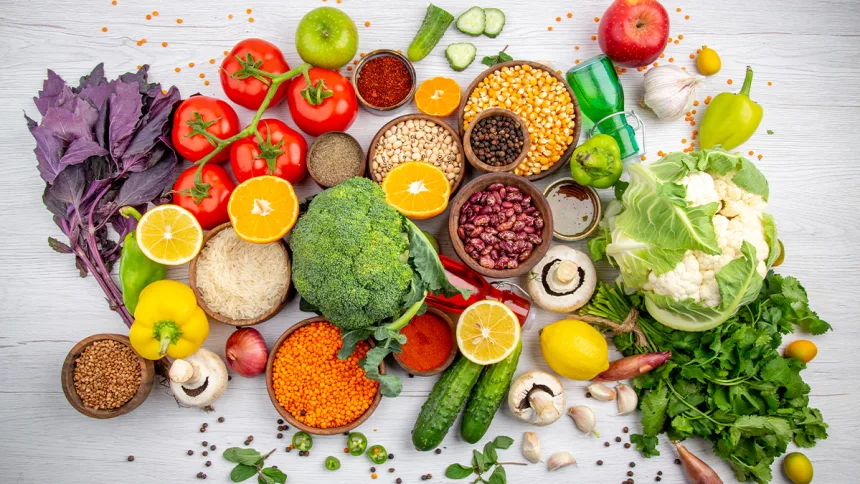Family is the bedrock of our society, and in the Middle East and North Africa (MENA) region, the culture of rich hospitality and sumptuous cuisine shared as a family is considered sacred. While the region’s traditional nutrient-rich Arabic fare, a close cousin to the Mediterranean diet, is packed with fibre and flavour, the same cannot be said for contemporary diets today. Modern lifestyles are now clashing with traditional dietary habits, leading to a silent unfolding health crisis – stroke.
Do you know that the MENA region represents 6% of the world population with an age-standardized stroke rate of 87.7 (78.2–97.6) per 100,000 population? This is relatively high when compared to the global average, which is around 157.99 per 100,000 population.
Stroke, once considered a disease of the elderly, is increasingly affecting younger populations and creating an unprecedented burden on the region’s healthcare system. Recent statistics in the UAE for instance, paint an alarming picture – stroke is now the second leading cause of disability in the UAE with approximately 9,000 to 12,000 new cases reported every year. As we witness this troubling trend, the role of diet in stroke prevention has never been more critical.
In recent years, a growing body of research has identified the importance of individual food groups, for instance, fruit, on the incidence of cancer and cardiovascular diseases including stroke. Over the years, research has increasingly demonstrated that consuming higher quantities of fruits and vegetables, which are high in fiber, can significantly reduce stroke incidences. The PREDIMED study, a multi-center randomized clinical trial comparing two Mediterranean style diets with a low-fat diet, supports this association.
Both Mediterranean-style diets reduced the risk of total stroke and ischemic stroke. Fruits and vegetables are protective against stroke, with one recent meta-analysis demonstrating that persons with the highest fruit and vegetable consumption were 21% less likely to have a stroke compared to those with the lowest consumption. In the meta-analysis, the association was similar for fruit and vegetable consumption when considered separately.
Sadly, age-old foods rich in fiber are being increasingly replaced by processed alternatives high in sodium, sugar, and unhealthy fats. Combined with sedentary lifestyles, this dietary transformation has created the perfect storm for cardiovascular disease and stroke.
The numbers are sobering. According to recent health surveys, 67.9% of adults in the UAE and 24.7% in Saudi are obese. In general, the pooled prevalence of hypertension in the Middle East region of individuals over 15 years of age was 24.36%. Hypertension and diabetes have a direct correlation to stroke.
The DASH diet
However, there is hope. Applying principles of healthy eating can help. The DASH (Dietary Approaches to Stop Hypertension) diet, strongly endorsed by stroke prevention specialists, offers a practical framework for healthy eating.
Five large observational studies suggest that the Mediterranean-style diet rich in fruits and vegetables and low in red meat with moderate alcohol and the use of olive oil or non-hydrogenated fats may have the most potential as a dietary intervention to prevent stroke. Prospective research studies [Nurses’ Health Study, Northern Manhattan Study, and the European Investigation into Cancer] all demonstrate reduced risks with this pattern.
The DASH diet, which is similar in approach to the Mediterranean diet, emphasizes fruits, vegetables, as well as a lower intake of red meats and sweets to reduce stroke occurrence.
The challenge now lies in translating this knowledge into action. Public health initiatives must bridge the gap between awareness and implementation. Healthcare providers today are finding growing success in pioneering innovative approaches to dietary education that combine traditional wisdom with modern nutritional science.
Let us remember that preventing stroke through diet is not just about avoiding disease; it’s about embracing a lifestyle that promotes overall health and wellbeing.
Patients who have adopted Mediterranean or DASH-style diets are typically showing significant improvements in blood pressure control, cholesterol levels, and overall cardiovascular health. These improvements translate directly to reduced stroke risk.
The economic implications cannot be ignored. The average cost of treating a stroke patient in the UAE exceeds AED100,000 in the first year alone. This figure doesn’t account for long-term care, rehabilitation, or lost productivity. By investing in dietary education and prevention programs, we can considerably reduce this economic burden while improving public health outcomes.
Stroke prevention as part of public health policy
Looking to the future, the role of diet in stroke prevention must become a central focus of public health policy. This requires a multifaceted approach starting with:
- Enhanced nutritional education in schools and workplaces
- Improved collaboration between healthcare providers and community leaders
- Support for research into culturally appropriate dietary interventions
- Development of practical guidelines for families and individuals
At the Sheikh Khalifa Stroke Institute, we are working to deploy integrated knowledge and capabilities to address this growing public health challenge. What we need now is a collective commitment to change. Every meal choice becomes an opportunity for stroke prevention, and every dietary improvement is a step toward a healthier future.
Also Read: The Role of Precision Medicine in Personalized Nutrition
The rising incidence of stroke in the UAE is not inevitable. Through conscious dietary choices and a community-wide commitment to healthier eating habits, regular exercise, and non-smoking, we can reverse this trend. The time for action is now—our health, our economy, and our future generations depend on it.
Let us remember that preventing stroke through diet is not just about avoiding disease; it’s about embracing a lifestyle that promotes overall health and well-being. The choices we make today will shape the health statistics of tomorrow. In the face of rising stroke numbers, let our response be clear: prevention through nutrition must become our first line of defense.






















